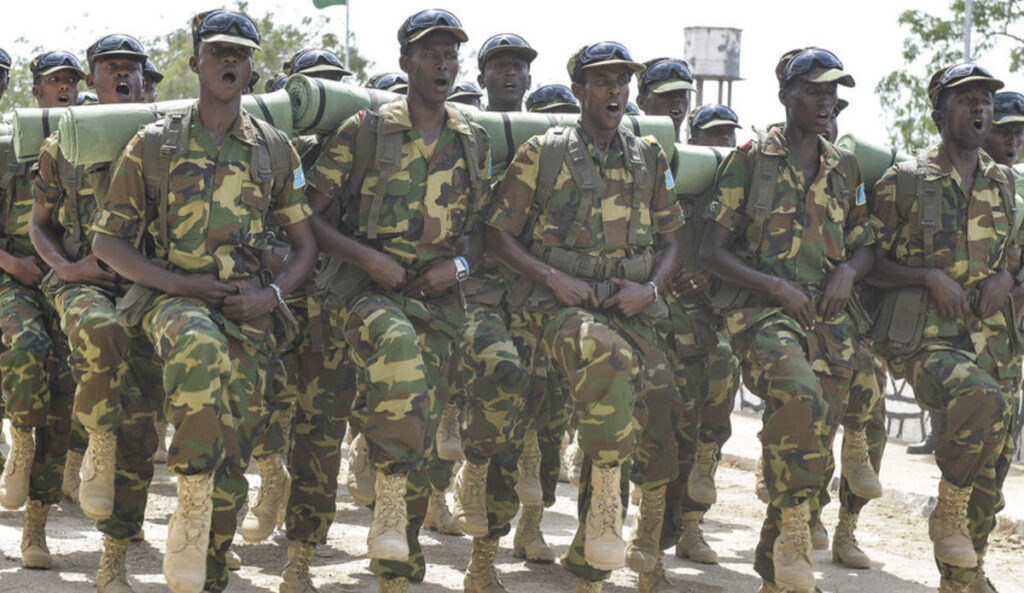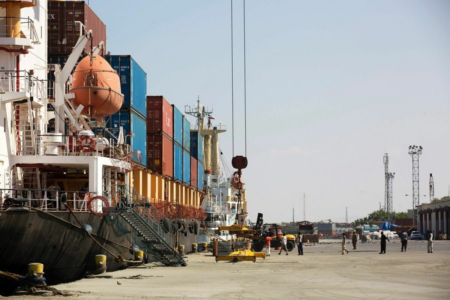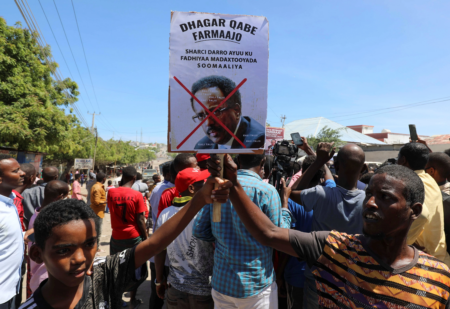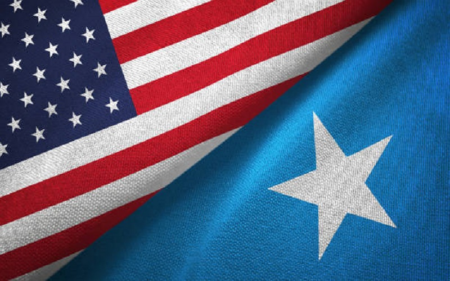African leaders are sounding the alarm over a deepening financial crisis threatening Somalia’s security gains against Al-Shabaab insurgency.
With a reported US$180 million funding gap facing the African Union Support and Stabilization Mission in Somalia (AUSSOM), officials caution that hard-won progress in stabilizing the country could unravel without urgent international support.
Funding Gap Threatens Somalia’s Stability
Ahead of the United Nations General Assembly (UNGA) in New York, Kenya’s Foreign Affairs Cabinet Secretary Musalia Mudavadi stressed that Somalia risks a “relapse” into instability if international partners withdraw or reduce their backing.
His warning reflects growing fears that the fragile security environment—after years of joint AU-Somali operations—could deteriorate if troops are left underfunded and underequipped.
African Union Commission chair Mahmoud Ali Youssouf echoed this message during a high-level summit on 25 September dedicated to mobilizing resources for AUSSOM.
Both African leaders underscored that without immediate cash injections from the European Union, United States, and other donors, the mission’s ability to combat Al-Shabaab could be severely compromised.

Pledging Conference Delivers Support, But Not Enough Cash
The pledging conference, held on the sidelines of UNGA and chaired by Somali President Hassan Sheikh Mohamud, was co-convened by the African Union, United Nations, and the United Kingdom.
The meeting attracted strong rhetorical backing from troop-contributing countries such as Ethiopia and Kenya, but pledges fell far short of the mission’s needs.
The AU announced it had doubled its Peace Fund contribution to $20 million, while the UK pledged $30 million.
Yet these amounts represent only a fraction of the total shortfall.
The heavy lifting will likely fall to traditional donors like the EU and the United States, whose funding decisions are currently stalled by political and procedural hurdles.
US Veto and UN Deadlock Stall Long-Term Financing
A key reason for the shortfall stems from an impasse at the UN Security Council.
US President Donald Trump vetoed Resolution 2719, which would have allowed UN assessed contributions to cover up to 75% of the costs for AU-led peacekeeping operations, leaving the remaining 25% to voluntary contributions such as the EU.
This veto effectively froze a mechanism that could have provided predictable, long-term funding for missions like AUSSOM.
The UN General Assembly has yet to deliver a breakthrough, leaving the AU scrambling for alternative financing sources.
While the Peace Fund offers some relief, it cannot replace the scale of funding once envisioned under the blocked resolution.
Gulf States Courted for Financial Support
In a bid to diversify its funding base, the AU has reached out to Saudi Arabia, the United Arab Emirates and Qatar to secure additional contributions.
However, these efforts have so far failed to yield significant results.
Without new donors stepping up, the AU faces the daunting challenge of maintaining security operations in Somalia at a time when Al-Shabaab remains a potent threat.
African Leaders Call for Renewed International Commitment
Analysts warn that a retreat in international funding could erode years of progress achieved through joint AU-Somali operations, including improved territorial control, better training of Somali security forces, and enhanced regional cooperation.
A weakened AUSSOM would also jeopardise plans to gradually hand over security responsibilities to Somali forces, a cornerstone of the country’s long-term stabilisation strategy.
As the global community gathers at high-profile forums like the UNGA, African leaders are urging partners to translate rhetorical commitments into real financial support.
Without bridging the $180 million gap, Somalia’s security achievements could be undone, with consequences for regional stability and international security alike.








